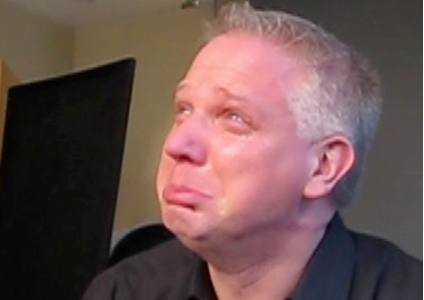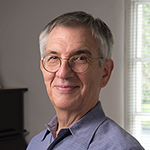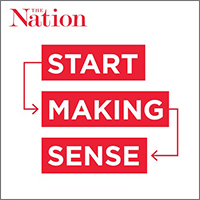 LISTEN ONLINE TO THIS SHOW – SUBSCRIBE TO PODCAST
LISTEN ONLINE TO THIS SHOW – SUBSCRIBE TO PODCAST
L.A. Times Festival of Books Preview: DAVID ULIN, book editor of the L.A. Times, talks about BookFest highlights, including his own sessions with Dave Eggers and Elif Batuman. BookFest schedule, info HERE. Tickets required but free from Ticketmaster: HERE. My session: “Does the American economy have a future?” Sunday 11:00 Rolfe Hall.
Plus ROBERT MEEROPOL talks about the 20th anniversary of the Rosenberg Fund for Children. He also will report on new info on the Rosenberg case in the new book Exoneration by Emily and David Alman. Upcoming RFC events in LA: Sat. in Santa Monica, 4:30-6:30: contact Henry Slucki 310-556-2529 or hslucki@usc.edu; Sun. 10:15am, “New Revelations in the Rosenberg Case” American Jewish Univ., 15600 Mulholland Dr., Bel-Air. more info HERE.
 Also: politics and photography – DOROTHEA LANGE took the photo called “Migrant Mother,” the iconic image of the Great Depression and the New Deal -0- and a lot of other photos the government censored. LINDA GORDON will explain – her book Dorothea Lange, a Life Beyond Limits has been nominated for the LA Times Book Prize in biography. Linda’s session at the BookFest is Saturday 12:30pm in Young Hall. (originally broadcast 11/4/2009)
Also: politics and photography – DOROTHEA LANGE took the photo called “Migrant Mother,” the iconic image of the Great Depression and the New Deal -0- and a lot of other photos the government censored. LINDA GORDON will explain – her book Dorothea Lange, a Life Beyond Limits has been nominated for the LA Times Book Prize in biography. Linda’s session at the BookFest is Saturday 12:30pm in Young Hall. (originally broadcast 11/4/2009)
 Stephen Ambrose, the best-selling historian who wrote or edited more than a dozen books about Eisenhower as general and president, based his fame in large part on what he said were his interviews with Ike – but now, eight years after Ambrose’s death, an official at the Eisenhower Library in Abeline says the interviews never took place.
Stephen Ambrose, the best-selling historian who wrote or edited more than a dozen books about Eisenhower as general and president, based his fame in large part on what he said were his interviews with Ike – but now, eight years after Ambrose’s death, an official at the Eisenhower Library in Abeline says the interviews never took place. A prominent British historian has found a new way to get in trouble: Orlando Figes, a historian of Stalin’s Russia at Birkbeck College, London, and a contributor to the New York Review, has admitted that his wife has been publishing hostile comments about rival historians at Amazon.co.uk under a pseudonym.
A prominent British historian has found a new way to get in trouble: Orlando Figes, a historian of Stalin’s Russia at Birkbeck College, London, and a contributor to the New York Review, has admitted that his wife has been publishing hostile comments about rival historians at Amazon.co.uk under a pseudonym.

 Plus: China today has more millionaires, more skyscrapers, and more internet users than any other country. But what happened to Mao? What happened to the Cultural Revolution? Everything you need to know about China – but were afraid to ask: UCI historian
Plus: China today has more millionaires, more skyscrapers, and more internet users than any other country. But what happened to Mao? What happened to the Cultural Revolution? Everything you need to know about China – but were afraid to ask: UCI historian 
 Also:
Also: 
 Plus: TOM FRANK asks, When will the GOP stop whining about the ‘elites’? Glen Beck & Co. claim to be victims — of those darn liberals who control everything. Tom is the author of What’s the Matter with Kansas? and he writes
Plus: TOM FRANK asks, When will the GOP stop whining about the ‘elites’? Glen Beck & Co. claim to be victims — of those darn liberals who control everything. Tom is the author of What’s the Matter with Kansas? and he writes
 Also: How a well-connected oil company revolutionized the way America makes war – and why Obama still needs them:
Also: How a well-connected oil company revolutionized the way America makes war – and why Obama still needs them:
 And historian
And historian 
 Plus: Debunking 9-11 Conspiracy Theories:
Plus: Debunking 9-11 Conspiracy Theories:  “It is hard not to be intimidated by New Left Review,” Stefan Collini wrote recently in the Guardian. He’s right: first there is the intellectual range and analytical power of the NLR writers, and now there’s the fact that it has been publishing for fifty years. The fiftieth anniversary issue–the 299th–reviews the magazine’s history, announces its current agenda and displays the qualities that have made it so significant over the past half-century.
“It is hard not to be intimidated by New Left Review,” Stefan Collini wrote recently in the Guardian. He’s right: first there is the intellectual range and analytical power of the NLR writers, and now there’s the fact that it has been publishing for fifty years. The fiftieth anniversary issue–the 299th–reviews the magazine’s history, announces its current agenda and displays the qualities that have made it so significant over the past half-century.
